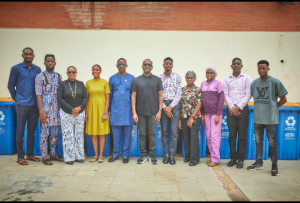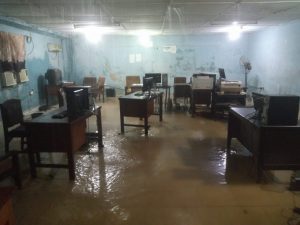Attention shifts to IMF/World Bank for funds to fight COVID-19-FBNQuest

FBNQuest has said the fiscal and monetary firepower of the Nigerian authorities to resist the coronavirus is limited, hence, attention has shifted to the ongoing Internationa Monetary Fund and World Bank, Spring meeting for funds to fight COVID-19 pandemic.
Although, FBNQuest had ealier noted that the Central Bnak of Nigeria is to make a sizeable contribution from its own balance sheet. However, in a latest report stated that focus will be the assessment of the economic damage of coronavirus globally and the response of the duo in financial support.
Just recently, there was an announcement that the Fund was granting immediate debt relief totaling US$500m to 25 countries, but Finance Minister, Zainab Ahmed, clarified that Nigeria never borrowed from the Fund.
Ahmed had, however, siad that it would seek US$6.9 billion in support from its external partners, consisting of US$3.4billion from the IMF, US$2.5billion from the World Bank and US$1.0billion from the African Development Bank (AfDB).
From the Fund the FGN will look to draw from the rapid credit facility (RCF) for low-income members, failing which the rapid financing instrument (RFI). Nigeria plainly qualifies for these credits, which are designed as balance-of-payments support to confront commodity price and other shocks.
Access per year to both facilities has been widened from 50 to 100 per cent of quota on a temporary basis because of the virus. It just happens that Nigeria’s quota, which is measured in SDRs, works out at about US$3.4bn. The criteria for low-income status are fluid, and it may be significant that Senegal, which sits on both sides of the threshold, has this week been granted support of about US$440m from a combination of both schemes.
So the FGN is looking to borrow from the Fund for the first time, albeit with a generous grace period and a final maturity of ten years.
The World Bank Group, which is already Nigeria’s largest single creditor, is financing virus-related operations in more than 50 countries, and plans to make up to US$160bn available globally over 15 months. The AfDB, having raised US$3bn on international capital markets last month from sales of a social bond, has now launched its own US$10bn response facility. The FGN should secure financing from both agencies, which will make funds available for the local private sector (including manufacturers of relevant equipment) as well as through the usual official channels.
Before the spring meetings close on Friday, the joint Fund/Bank development committee is expected to endorse proposals for debt relief from bilateral creditors for those eligible countries that seek it.
Nigeria is eligible but may not seek it if the conditions include the requirement that borrowers undertake to push for at least comparable terms from commercial creditors. We would be surprised if the FGN would be prepared to jeopardize its access to the Eurobond market.
Some nameless governments with weaker credit stories than Nigeria’s that have tapped this market in the past three years will have to go down this route to secure bilateral debt relief and accept the reputational damage in the commercial market.For virus-fighters, the focus should be on the virtual spring meetings this week for policy statements and guidance as to the timing of disbursements.
In value terms the domestic response to the virus in Nigeria (according to the CBN’s estimate)is larger than Ahmed’s full shopping list with the three multilaterals. The external partners may deliver more quickly, however








